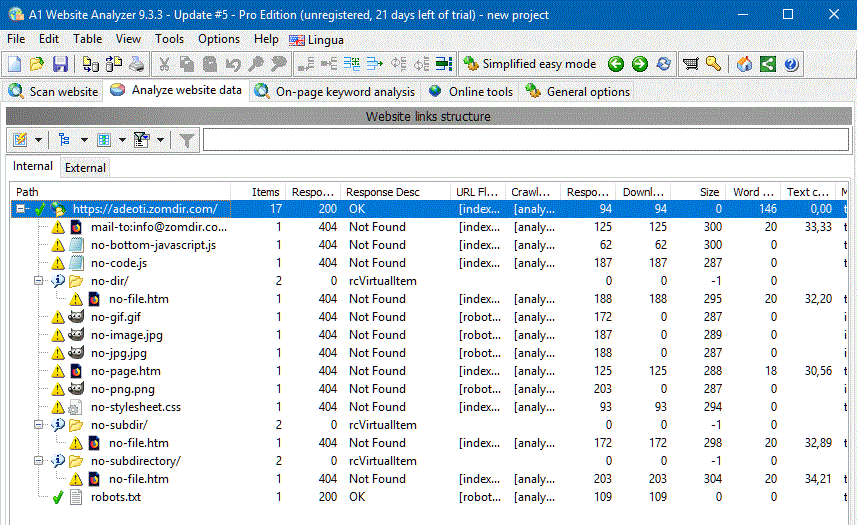
They are very important for continued growth and for firms, but at the same time they destroy jobs and they reduce labor demand. “Our evidence shows that robots increase productivity. “It’s obviously a very important issue given all of the anxiety and excitement about robots,” Acemoglu said.
A1 WEBSITE ANALYZER V8.0.2 MANUAL
Industries are adopting robots to various degrees, and effects vary in different parts of the country and among different groups - the automotive industry has adopted robots more than other sectors, and workers who are lower and middle income, perform manual labor, and live in the Rust Belt and Texas are among those most likely to have their work affected by robots. To conduct their research, the economists created a model in which robots and workers compete for the production of certain tasks. The impact is more sizable within the areas where robots are deployed: adding one more robot in a commuting zone (geographic areas used for economic analysis) reduces employment by six workers in that area.

The researchers found that for every robot added per 1,000 workers in the U.S., wages decline by 0.42% and the employment-to-population ratio goes down by 0.2 percentage points - to date, this means the loss of about 400,000 jobs.

Labor Markets,” by MIT professor Daron Acemoglu and Boston University professor Pascual Restrepo, PhD ’16, finds that industrial robots do have a negative impact on workers. The recently published paper, “Robots and Jobs: Evidence from U.S. But so far hype has outweighed information about how automation - particularly robots, which do not need humans to operate - actually affects employment and wages. Machines replacing humans in the workplace has been a perpetual concern since the Industrial Revolution, and an increasing topic of discussion with the rise of automation in the last few decades.


 0 kommentar(er)
0 kommentar(er)
